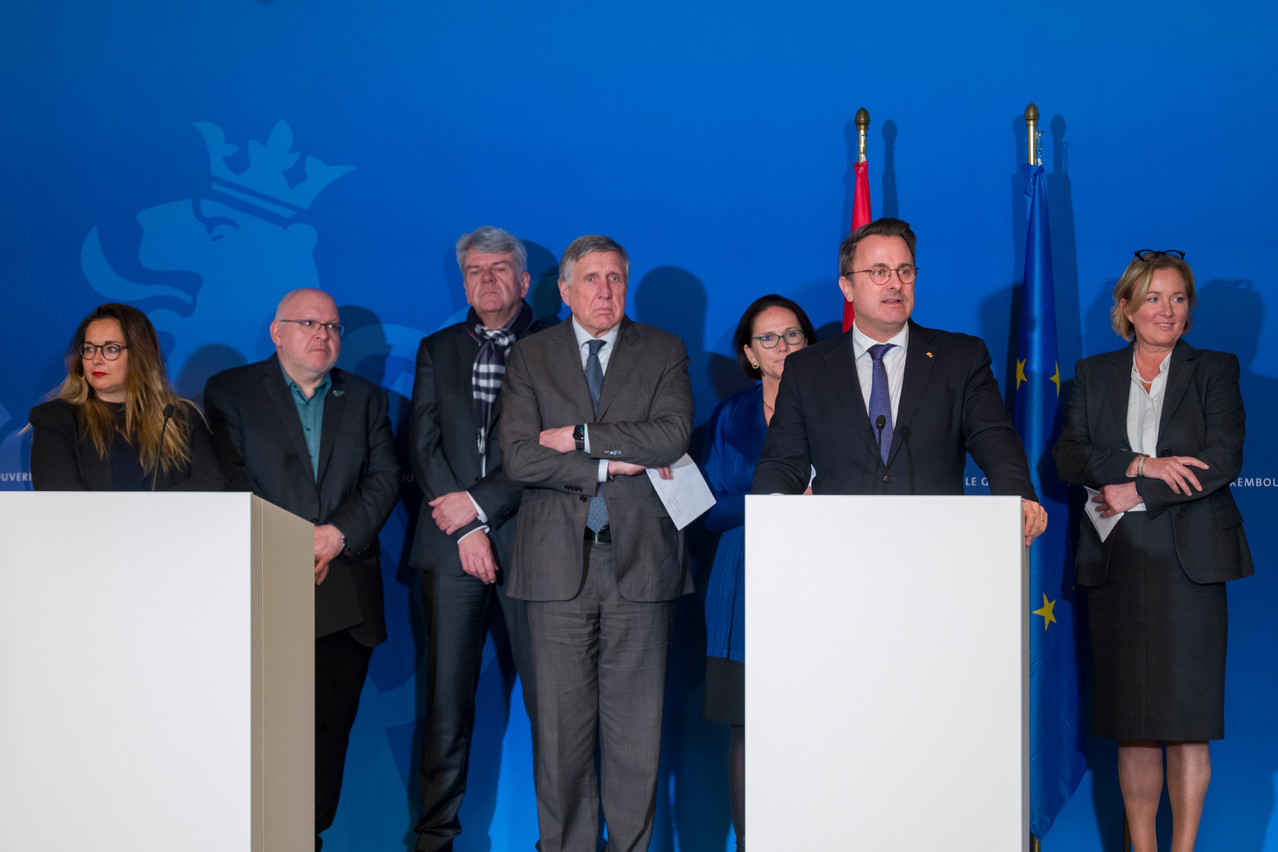For the third time in one year, prime minister Xavier Bettel (DP) had convened a so-called tripartite, a crisis mechanism that brings social partners around the table to seek consensus on measures to be adopted. The tripartite was born during the 1970s oil and steel crisis and also activated during the covid-19 pandemic.
“That we reached an agreement today shows that we can find solutions also in crisis situations,” said Bettel, who celebrated his 50th birthday on Friday, during a press conference.
The measures agreed after eight hours of talks on 3 March should help keep inflation at 2.8% in the coming year. Forecaster Statec had predicted inflation of 4.8% in a medium scenario without some of the actions now on the horizon.
A cap on energy prices as well as an energy subsidy for low-income households already part of the last tripartite agreement are being extended until the end of 2024. Companies will receive compensation for the indexation payment due in the third quarter of this year until the end of January 2024, with the state committing to helping businesses shoulder some of the burden of the automatic adjustment of wages to inflation.
“We are showing companies here in the country but also internationally that you can plan your costs long-term,” said Michel Reckinger of the UEL business union, which has long argued that indexation makes Luxembourg less competitive for global businesses.
A sticking point for labour unions was an adjustment of tax brackets to ensure a maximum of the index actually lands in people’s pockets. The OGBL had previously said that the wage increase for a salary of €5,000 wasn’t 2.5% but only 1.7% after taxes.
The government on Friday pledged to adjust tax brackets by 2.5 indexation payments (6.25%) from 2024. For this year, a tax credit will apply retroactively from 1 January to compensate for the taxes paid on two indexation payments.
With elections coming up in October this year, none of the political parties were willing to take greater strides on tax reform, said Nora Back, president of the OGBL during the same press conference. “It remains one of our demands,” she said.
But the package also includes a number of measures on housing. A tax credit for registration and transcription fees (the so-called Bëllegen Akt) is raised from €20,000 to €30,000. The tax exempt amount on mortgage interest is increased from €2,000 to €3,000. Property owners taking part in a social rental scheme, the “gestion locative sociale” will see their tax break rise from 50% to 75% of rent.
A tax credit will also apply for low-income households to help them pay for the CO2 tax. Tax breaks meanwhile will be in place for homes feeding photovoltaic energy into the grid.
